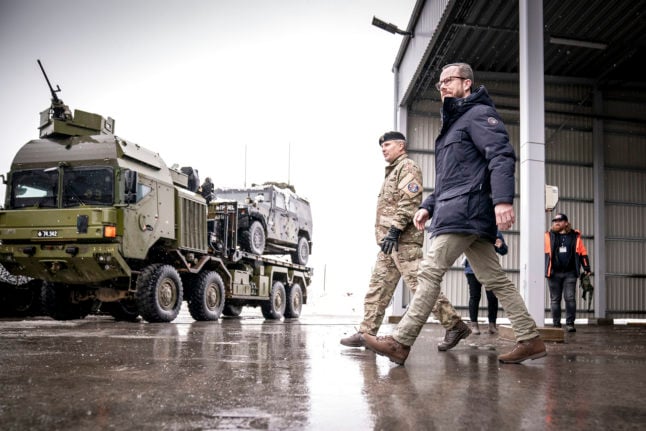The defence ministry said late Thursday that negotiations were on “with the manufacturer Elbit Systems for the delivery of ATMOS artillery pieces and PULS rocket launcher systems as soon as possible”.
The equipment could be delivered this year, the government said.
“The rocket launchers complement the new artillery systems,” the ministry said.
Denmark had ordered 15 mobile long-range howitzers from French company Nexter in 2017, and four more in 2019.
But deliveries have been delayed and only a few have arrived. All of them have been pledged to Ukraine.
The system can carry 36 155 mm shells and reach targets at distances of up to 40 kilometres (24 miles). ATMOS can fire six shots per minute and can be mounted on most off-road 8X8 trucks.
The next acquisitions are “important for Denmark’s defence and for Denmark to be able to meet its NATO commitments,” Defence Minister Jakob Ellemann-Jensen said.
“The donation to Ukraine leaves a critical capability gap in defence,” he said.
According to Danish media, Nexter advised Denmark against changing suppliers, saying it could provide new artillery.
“Caesar has proven itself on the battlefield in Ukraine, Danish soldiers can use them and the parts are compatible with Danish military IT systems,” a spokesman for the group said.
The primary reason for the defence ministry’s choice of Elbit is that it can deliver the hardware much sooner that its competitor, media Altinget reports.
But the decision to purchase from the Israeli company could prove a controversial one, given that several international banks and pension funds — including some in Denmark — refuse to invest in the company on ethical grounds related to its supply of surveillance and other equipment for use in the West Bank, Altinget writes.



 Please whitelist us to continue reading.
Please whitelist us to continue reading.
Member comments